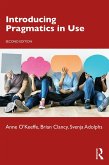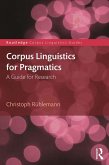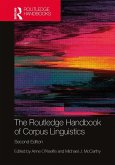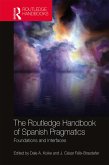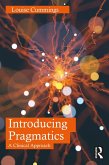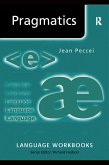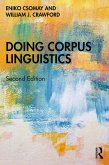Substantially revised and updated, this second edition covers a wider range of topics, corpora and software packages. It consistently demonstrates the benefits of innovative analytical synergies and extends this to how corpus pragmatics can be further blended with, for example, conversation analysis or variational pragmatics. The second edition also offers a new chapter specifically dedicated to corpus pragmatics which proposes a framework for both form-to-function and function-to-form approaches. The book also addresses the - sometimes thorny - area of the integration of the teaching of pragmatics into the language classroom. All chapters in the second edition include a number of cohesive, step-by-step tasks that can be done in small groups in class or can be used as self-study resources.
A wide range of illustrative language samples drawn from a number of English language corpora, coupled with instructive tasks and annotated further reading sections, make this an ideal textbook for advanced undergraduate or postgraduate students of pragmatics, discourse analysis and corpus linguistics within applied languages / linguistics or TESOL programmes.
Dieser Download kann aus rechtlichen Gründen nur mit Rechnungsadresse in A, B, BG, CY, CZ, D, DK, EW, E, FIN, F, GR, HR, H, IRL, I, LT, L, LR, M, NL, PL, P, R, S, SLO, SK ausgeliefert werden.
Jonathan Culpeper, Lancaster University, UK
"It has long been argued that pragmatics should be an empirical discipline. The second edition of this textbook fulfils that promise. The authors systematically draw on real-life examples from language corpora to illustrate complex theoretical concepts in a clear and accessible manner. In so doing they lay a solid foundation for students of pragmatics to further advance the field."
Michael Haugh, The University of Queensland, Australia
"This book represents an important contribution to the introductory literature on pragmatics. It is a reference for learners, teachers and researchers. The real data that prevail throughout the chapters make the book an interactive one that perfectly suits learners and teachers alike. In addition, the wide range of topics examined and the tasks included in each chapter provide insights for researchers."
Journal of Pragmatics 158 (2020), Sharif Alghazo



